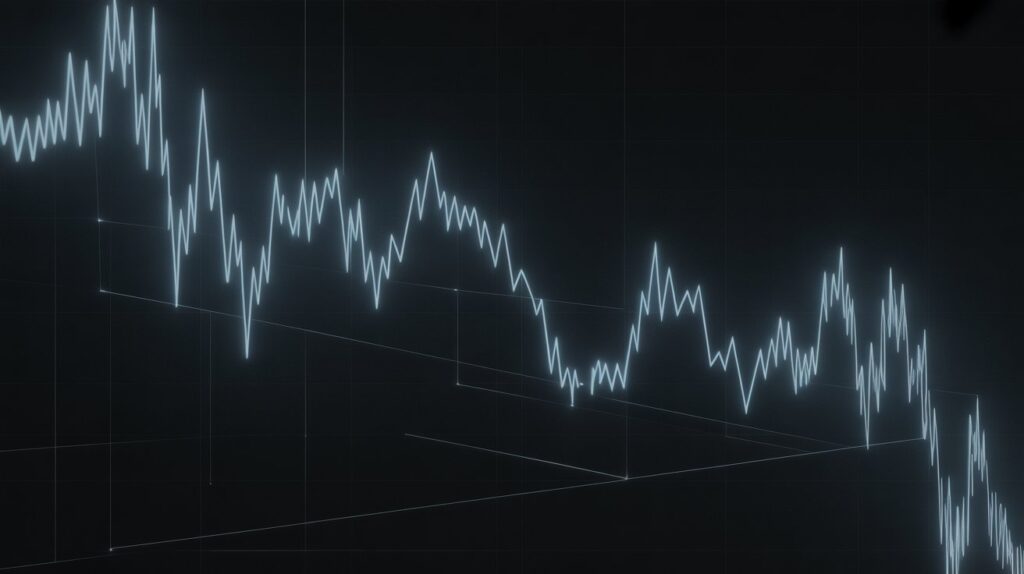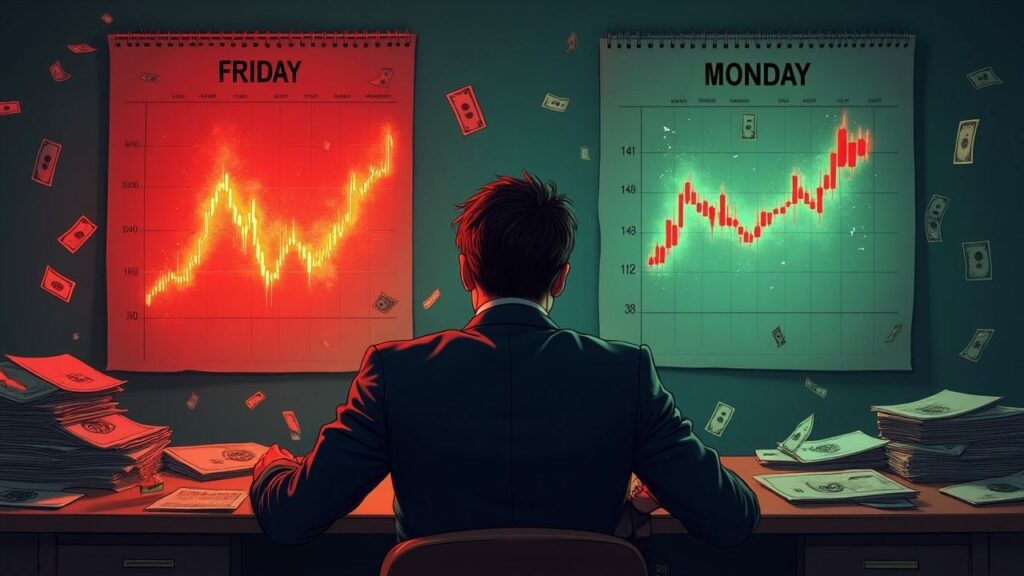Revenge trading is one of the most destructive habits in trading psychology. It happens when traders chase losses out of anger, ego, or desperation, turning logical decision-making into emotional chaos. This article breaks down the psychology behind revenge trading, how it sabotages your growth, and the exact steps to break free and rebuild discipline.
Introduction: Setting the Stage
You’re not losing to the market. You’re losing to yourself. That sinking feeling after a brutal loss? It’s not just disappointment. It’s the spark that lights the fuse of revenge trading.
One bad trade turns into five. One red candle becomes a war zone. You’re no longer trading a setup, you’re trading your ego. And just like that, your account, confidence, and discipline begin to bleed again.
Sound familiar? You’re not alone and you’re not broken. But if you don’t face this hidden habit, it will keep blowing up your account.
Let’s talk about revenge trading, why it owns you, and how to take the power back.
The Echo of Regret
That sinking feeling in your gut after a loss. You know the one. It doesn’t whisper. It hisses: “I just want my money back… now.”
It starts as frustration, a bad trade, an unexpected move, a rule you bent “just once.” What follows isn’t just a loss. It’s an emotional pivot.
You enter again. No plan. No setup. Just fury disguised as confidence. And just like that, the market stops being a system, it becomes a battleground you must win.
The Illusion of Control
Revenge trading feels like taking control. In reality, it’s panic in disguise. A drowning trader clutching anything that floats.
It offers one seductive thing, the illusion of power. But what’s really happening is emotional reactivity. You’re no longer trading the market; you’re trading your emotions. And the market doesn’t care, but you do.
The Psychology Behind Revenge Trading
The Bruised Ego’s Roar
Ego in trading is subtle. It’s not the swagger you post online. It’s the quiet voice that screams after a loss: “I’m smarter than this! I can’t lose to that market!” Every trader, beginner or veteran has felt that sting.
A losing trade isn’t just financial pain. It’s identity pain. And that bruised ego doesn’t want reflection, it wants retaliation.
The Addiction of the “Quick Fix”
Revenge trading is like chasing a bad poker hand. You know you’re down, but one more round feels like redemption.
It’s a chemical cocktail, cortisol, dopamine, adrenaline that tricks your brain into thinking “one more trade” will fix it.
In 2024, a study from MIT’s Sloan School of Management found that 78% of active retail traders admitted to trading impulsively after a loss, and 62% of them experienced greater subsequent drawdowns.
The lesson: reacting feels good. Responding builds longevity.
You need to shift from reacting to responding. That’s the dividing line between amateurs and professionals.
Revenge Trading Traps: How It Sneaks In
The “One More Trade” Lie
You tell yourself: “Just one more trade. This time it’ll work.”
That whisper isn’t strategy, it’s desperation wearing confidence.
Traders who chase “just one more” abandon process for impulse, leaving discipline behind.
See also: The Psychology Behind Revenge Trading and How to Stop
The Blurry Lines of Desperation
Your rules bend. Then break. Then vanish. Every chart feels like opportunity. Every candle looks like a setup.
Your edge? Gone. Now you’re not trading, you’re pleading for redemption. And that’s how revenge trading quietly drains not just accounts, but identity.
The Late-Night Screen Stare
It’s 2 AM. No setups. No plan. Just need. You scroll. You click. You enter trades you’d never take in daylight, because logic is asleep, and revenge is wide awake.
Every trader has sat in that chair. Some never leave it.
The Devastating Consequences
The Account’s Slow Bleed
Revenge trading rarely blows up an account in one move. It’s death by a thousand emotional cuts.
You win one. Lose two. Win again. Then wipe out five in a flash of frustration.
The worst part? You know it’s happening and still can’t stop.
That’s the silent agony of watching yourself drown in slow motion.
The Mirror You Can’t Face
Eventually, it’s not about money. It’s about identity. You started with rules, vision, and discipline. Now you see someone reacting, chasing, and breaking promises to themselves.
This isn’t just financial loss. It’s a loss of self-trust.
The Burnt Bridge of Trust
Every revenge trade breaks a promise, to your plan, your discipline, your future self. And rebuilding that trust takes longer than recovering capital.
That’s why revenge trading is so dangerous: it destroys the foundation of consistency, belief in yourself.
Also read this: Your Ego Is Killing Your Funded Account
Breaking Free: How to Reclaim Control
The Power of the Pause Button
Your best trading tool isn’t an indicator. It’s the pause button.
Try this routine:
- After any loss, set a 15-minute timer.
- During that time, no charts, no Discord, no trades.
- Write down what you’re feeling. Name it.
- When the timer ends, reevaluate.
In 8 out of 10 cases, the urge fades. This simple act interrupts emotional autopilot, the root cause of revenge trading.
Embracing the “Unsexy” Discipline
Discipline isn’t flashy, but it’s everything. Create a rule: No re-entry after a loss without plan review. Stick to it, even when it hurts. Especially when it hurts.
Consistency beats emotion. Always.
Reclaiming Your Trader Identity
You’re not your worst trade. You’re the person who learns from it.
Here’s how to reinforce that identity:
- Journal your post-trade emotions (wins and losses).
- Create a “Revenge Trade Red Flag” checklist, symptoms, urges, pre-entry tests.
- Have a weekly accountability partner or coach review your trades.
Trading is lonely, but growth doesn’t have to be.
The Silent Victory of Not Trading
Sometimes, the best trade you’ll ever make is the one you don’t take. That skipped revenge entry? It won’t show on your P&L, but it shows up in your growth.
Celebrate those invisible wins. Track them. Reward them. Because every time you resist, you’re not just saving money, you’re saving yourself.
Revenge Trading vs. Rational Trading
| Aspect | Revenge Trading | Rational Trading |
|---|---|---|
| Emotional State | Anger, frustration, ego-driven | Calm, objective, detached |
| Trigger | Loss or setback | Setup meets predefined plan |
| Goal | Recover losses fast | Execute edge consistently |
| Thought Pattern | “I’ll get it back now!” | “Does this fit my system?” |
| Outcome | Overtrading, deeper drawdown | Consistency, clarity, control |
Conclusion: A Call to Self-Mastery
The market doesn’t care about your emotions, but you should.
You have a choice:
- Be mastered by your losses.
- Or master your response to them.
You don’t need perfection, just awareness, consistency, and patience. One trade at a time. One pause at a time. One silent victory at a time.
Because you’re not just a trader. You’re a builder, of discipline, patience, and a future that isn’t ruled by revenge.
And the next time that whisper returns, “I just want my money back… now”, you’ll know how to answer: not today.
Break the Cycle, Reclaim Your Edge
If you’ve ever found yourself stuck in the revenge trading loop, now is the time to take back control.
– Subscribe to The Reborn Trader newsletter for weekly insights on emotional discipline and trading psychology
– Share this article with a trader who needs to hear this today
Remember: The best traders don’t just win, they walk away when it’s not their setup.
Join 1,000+ traders mastering their mindset: Subscribe Now

FAQs
What is revenge trading in psychology?
Revenge trading is the act of placing impulsive trades after a loss in an attempt to quickly recover losses, driven by emotional responses rather than strategy.
Why is revenge trading bad?
It leads to poor decision-making, breaks trading rules, and often results in larger losses, eroding both capital and confidence.
How do I stop revenge trading?
Pause trading after losses, stick to a written plan, keep a trading journal, and build emotional discipline through self-awareness.
Is revenge trading a sign of gambling behaviour?
Yes. Like gambling, it’s driven by emotion and the urge to win back losses quickly, without sound strategy.
Can journaling help stop revenge trading?
Absolutely. Journaling helps track emotional triggers, recognize destructive patterns, and reinforce disciplined trading behaviour.




